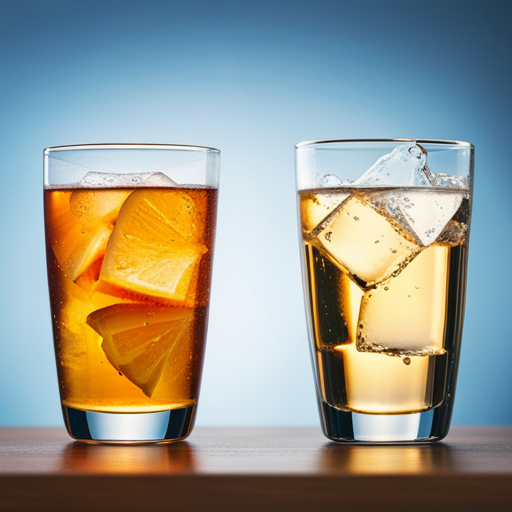Are you tired of dealing with the negative effects of hard water in your home? From damage to pipes and appliances to skin irritation and decreased soap efficiency, hard water can be a real hassle.
But is soft water really the better option? In this article, we’ll explore the differences between hard and soft water, and help you choose the best option for your needs.
First, let’s start with the basics. Hard water contains high levels of calcium and magnesium, while soft water has lower levels of these minerals.
The majority of American households have hard water, which can cause all sorts of issues. However, drinking hard water is generally safe and may even have health benefits.
On the other hand, soft water is better for cleaning dishes and using on skin, and can help extend the life of appliances and plumbing.
So, which is better for you? Let’s dive in and find out.
Key Takeaways
– Hard water contains high levels of calcium and magnesium, while soft water has lower levels of dissolved minerals.
– Hard water can damage pipes and appliances, decrease soap and cleaning product efficiency, and cause skin irritation.
– Treating hard water can be done through water softeners, reverse osmosis systems, or lime scale removers.
– While hard water is generally safe for consumption and may reduce certain disease risks, soft water is better for cleaning and can extend the life of appliances and plumbing. Ultimately, finding solutions for each activity based on water type is the safest option.
Water Hardness Basics
You may be wondering about the basics of water hardness. Tap water can be hard or soft depending on the level of dissolved minerals. Hard water contains high levels of calcium and magnesium, which can have negative effects on pipes, appliances, and skin. The majority of American households have hard water, but soft water can be found in certain regions such as New England, Hawaii, Pacific Northwest, and South Atlantic Gulf Regions.
Testing is the most reliable way to evaluate water hardness. Your local water provider can give a general idea of water hardness. The concentration of calcium and magnesium determines water hardness. Water is considered hard if gpg is greater than 3 gpg.
If your water is too hard, it can be treated with water softeners that use ion exchange to remove minerals. This can have benefits such as extending the life of appliances and improving the efficiency of soap and cleaning products.
Effects and Symptoms of Hard Water
Experiencing skin irritation and soap scum buildup are common indicators of the effects of mineral-rich tap water. The high levels of calcium and magnesium in hard water can cause dryness, itchiness, and exacerbate skin conditions such as eczema and psoriasis.
In addition, the efficiency of soap and cleaning products is decreased when used with hard water, leading to soap scum buildup on surfaces and in pipes.
If you’re experiencing digestive discomfort, hard water may be the culprit. The excess minerals in hard water can cause gastrointestinal issues such as bloating, constipation, and diarrhea.
It’s important to be aware of the symptoms of hard water and take action to treat it in order to avoid these negative effects on your health and home.
Choosing the Best Water Type
When selecting the type of water to use, it’s important to consider the benefits and drawbacks of each option.
Hard water is better for consumption, but soft water is better for cleaning. However, the decision between hard and soft water is not only about personal preference and practicality, but also about cost comparison and environmental impact.
The cost of producing soft water can be more expensive than producing hard water because of the additional process of removing minerals. Additionally, the process of softening water can lead to the production of brine waste, which can have negative environmental impacts if not disposed of properly.
On the other hand, hard water can cause damage to pipes and appliances, leading to potentially expensive repairs. It’s important to weigh the costs and environmental impacts of each option before making a decision on which type of water to use.
Conclusion
So, which is better – hard or soft water? It ultimately depends on your personal preferences and needs.
If you live in an area with hard water, it may be worth investing in a water softener to protect your pipes and appliances and improve the efficiency of your cleaning products. However, if you prefer the taste of hard water and aren’t experiencing any negative effects, there may be no need to make any changes.
On the other hand, if you have soft water, you can enjoy the benefits of gentler cleaning and potentially longer-lasting appliances. Soft water may also be better for those with sensitive skin.
Ultimately, the choice between hard and soft water comes down to what works best for you and your household. Consider factors such as taste, potential damage to plumbing and appliances, and any symptoms you may be experiencing before making a decision.




